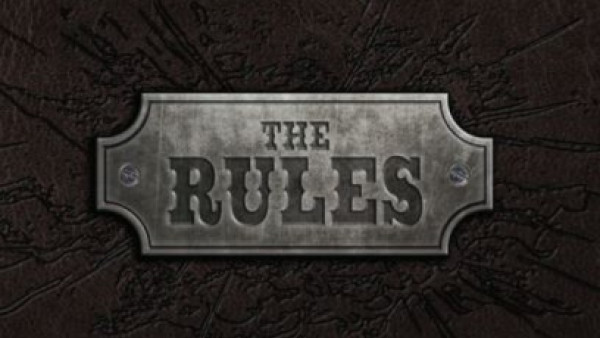Wizards Of The Coast Answers Lawsuit Filed Against Them
April 21, 2016 by stvitusdancern
Wizards of the Coast have put out a press releases detailing a lawsuit that was brought out against them from a small group of individuals who are judges at Magic: The Gathering tournaments.
The suit claims that since these judges are overseeing play at different tournaments that they in fact should be considered employees of Wizards of the Coast.
However, Wizards points out that they do not pay these judges except for the major championships that they actually run. The other small tournaments are run from local game stores and the stores coordinate the judges for these tournaments.
The full explanation from Wizards of the Coast can be found HERE. This does lead to an interesting question at what point is a person considered in the employment of an organization?
What do you think?
"...a lawsuit that was brought out against them from a small group of individuals who are judges at Magic: The Gathering tournaments"
Supported by (Turn Off)
Supported by (Turn Off)
Supported by (Turn Off)













































































Its clear in the UK: https://www.gov.uk/employment-status
I suspect it is more complex in the US.
What’s at stake in the lawsuit? By which I mean what would change if the suitors won? Would they be entitled to things like health insurance, staff discount, paid vacations?
How pathetic these guys are i bet no one asked themto do it and they volunteered probably through the love of the game, now become greedy i hope tgey lose. It will probably cost them more in legal fees in the end and the outcome they will not be organising any more events.
Interesting, if they are essentially volunteer’s who i presume have the entry fee to the tournaments waived or perform a free marketing exercise through demo games and other promotional activities etc. then the materials supplied and perks of “authority” would probably constitute all the payment they are entitled too. Would be interesting to see what the original complaint is about, and what if any contract they entered into to become a judge. I would presume it would work in a similar manner to street teaming in the music industry where you as a “teamer” get sent promo copies of albums… Read more »
They claim is not really legit considering that all judges are volunteers that had to do judge test. But considering that WotC had lawsuit against Hex Entertainment and Cryptozooic involving HEX: Shards of Fate that ended to settlement with disclosed terms that WotC considered to be too similar to MtG I don’t feel sorry for WotC for getting sued over any reason even if it’s not legit.
That’s kind of a poor attitude. In what ways does Hex: Shards of Fate actually differ from MtG? It’s clearly not that different if Cryptozoic felt they had to settle rather than fight the claim in court.
Companies aren’t entitled to a free pass just because you like them better, or feel they are in some way the underdog in a particular fight.
I honestly don’t know where you are getting this is most likely from “power drunk egomaniacs who believe success of magic in their area is down to them entirely”; every judge I have met has been the complete opposite. If anything, you are creating a straw man argument with regards to who might be bringing this law suit in the first place and what their motives might be (i.e. you’ve completely made up what this whole thing is about). People are typically only judges because of their love for the game; the fact that they are compensated relatively poorly by… Read more »
“…you essentially do volunteer work for.”
You just established it.
Unfortunately I don’t think @fleetey constitutes either US law or precedent lol
If a company is going to discipline people as though they work for them, then at the same time say they don’t employ them, then it sounds contradictory. It sounds like it is something that should be established so everyone knows what their standing is. Whether these people are right or not, that is entirely up to the US courts to decide, but I don’t think I’m wrong in saying that this law suit has come about in part due to the bans they imposed in December of last year rather than some mythical big head who thinks everyone is… Read more »
Its not contradictory, they almost certainly had some terms and conditions attached to there judge title. Such as cant publically talk about things before a release date, but might get a heads up of something happening in a month or two, so hints could be given, like “not saying what to buy, but i would wait ;)” etc. Ultimately its about brand protection, as you don’t want an unofficial spokesmen presenting them selves as though they have some position of authority within the brand. Bottom line (and it always is about the bottom line with these sorts of things) depending… Read more »
@fleetey My “power drunk” comment is indeed a massive generalisation and has NOTHING to with magic in particular, nor is it indicative of the behaviour of the vast majority of volunteers, but does stem from real world experience running promotional teams of volunteers who while initially do it for the love; with time certain personality types start thinking they are bigger than the team and that they are entitled for compensation for time and effort invested, which simply isnt the case, was never on offer and not what they signed up to. if this is just about sour grapes about… Read more »
I think this has the potential to have a significant impact on OP volunteer schemes. Employment laws exist in part to prevent exploitation of a workforce. If what WotC are asking from their judges in terms of workload and relationship is tantamount to employment, then they have rights as employees. WotC can’t circumvent that just by having them sign on as volunteers. Or at least they can until and unless someone successfully challenges them, much as football could hold the rights to a player even after their contract had expired until Jean-Marc Bosman successfully challenged it. I know nowhere enough… Read more »
Agreed, if anything as soon as they are “official” representatives of a company then a lot of the attraction and essentially the budget for running these sorts of things is removed from the companies point of view. Pretty sure the law (US and UK) is in WotC favour following some similar litigation regarding record companies (ab)use of street teams, where it was found the benefit in kind received was all that they were entitled too, as there was no obligation or detriment to the team members (no ones livelihood was at stake) if they didn’t do promotional activities other than… Read more »
I’m taking a look over the suit now. It seems as if the nuts and bolts are that the plaint claims the judges work around 25 per month, are treated by WotC as representatives of the company, and are subject to discipline by them. This constitutes an employer/employee relationship under the Fair Labor Standards Act and the California Labor Code, and entitle them to minimum pay, overtime pay, reasonable expenses, rest periods, and missed meal and missed rest period pay. It does allege that the work of all Magic judges are essential to the sale of the product, and that… Read more »
EDIT: I should add that that 25 hour figure is not just time spent judging, but includes all of the time training and being tested.
If they get any kind of discount on product, free stuff (even T-shirts) it could probably be argues as benefit in kind.
I’m not into magic at all so I have no clue about the history of this situation, it seems an odd place to end up though, so I’m guessing someone has lost out on something at some point and got annoyed.
This is just arm chair lawyering but after reading about half of the brief on scribd I honestly don’t see the judges having much of a case. If wizards organized the events and hired the judges then sure, however they very clearly do not. My FLGS puts on a magic tournament at least once a month. Usually organized by the owner. Even the pre releases are organized by the owner with the assistance of wizards providing symbiotic marketing. Ultimately the FLGS would be responsible for paying the judges not wizards. The plaintiffs can’t get blood out of a stone so… Read more »
The training, testing, and ranking means there’s more to it than just attending and running tournaments. Likewise being held to standards and being disciplined by WotC. Once again, I have no idea how much time any this actually takes or what rewards the judges do already receive, so have no idea how this will go, but I think there’s more to it than just the tournaments they judge at
I think it really comes down to if the training and testing cost the judge anything other than reasonable cost i.e. travel and food, (its not like you get to claim the cost of travel back from most job interviews…), if it was provided FoC/at WotC expense the fact they received it can be considered payment, i really think the judges in question here dont have much of a case having read through the brief it boils down to this: – They think of them selves as employees, even though they are volunteers – As they claim they are employees,… Read more »
Going to be an interesting one, and dependant on the local laws. I hope it doesn’t have a negative impact on other volunteer programs.
Personal view is you volunteered don’t like it stop
While I agree with not being required to pay judges as employees of Wizards, I should argue that the judges get paid compensation for their time running the big tournaments.